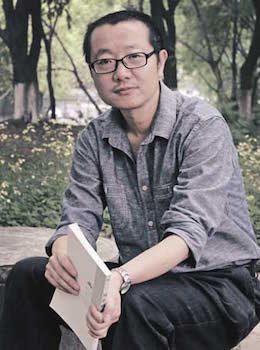Cixin Liu, author of the Remembrance of Earth’s Past trilogy, is looking into our future, and he’s not sure about what he sees. Writing for Turning Points, a magazine produced by The New York Times to look at specific moments from 2016, and explore what they might portend for the future, Liu chose to look at autonomous cars – but more specifically, at the first fatal autonomous car crash. As he writes, “As a science-fiction writer, it’s my duty to warn the human race that the robot revolution has begun — even if no one has noticed yet.”
The first fatal autonomous car crash took place in Florida in May, 2016, when a Tesla Model S collided with a tractor trailer while autopilot was on, killing the driver. This incident, while tragic, hasn’t stopped the widespread adoption of autonomous cars across the globe. Pittsburgh now has a driverless Uber service, while autonomous vehicles have been used for buses in United Arab Emirates and the Netherlands, taxis in Singapore, and private cars in China. This is clearly a movement that will only gain traction (and that will probably result in far safer travel, overall) but Liu looks beyond the single accident into how society will have to change to accommodate the cars.
Let’s try to envision that future. As during every other technological revolution, the robots will first transform our economy. People who drive for a living will lose their jobs — around 3 million in the United States alone. E-commerce may experience further booms because of automation, and car ownership is likely to become nearly obsolete as more targeted car sharing and public transportation systems are developed. Eventually, the robot cars could be integrated with other transportation systems. Say that you live in New York City and want to go to China’s Henan Province: You will enter the address into an app, a car will take you to your plane at the airport, and after you land, another will take you directly to your destination.
This is the good side of it, obviously, but Liu goes beyond shifts in travel to look at the wider implications of a robotic revolution. He delves into how the economy will change as service jobs are decimated by automation. And maybe even more important, Liu wants to ask how the human psyche and sense of self will adapt as we give more and more of our jobs to robots. If machines can do everything better than us, then what will our purpose become?
You can read the whole essay over at The New York Times’ Turning Point!










